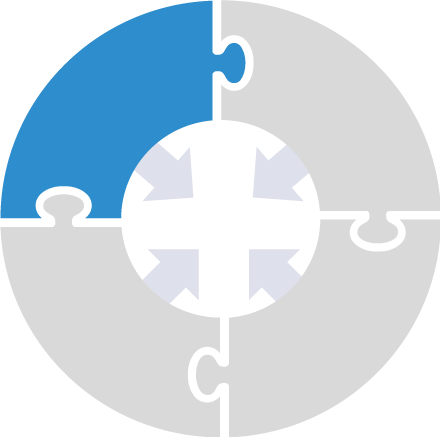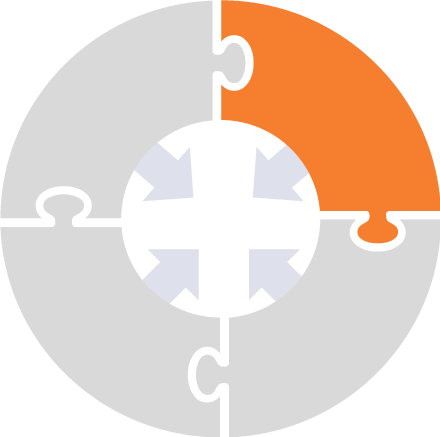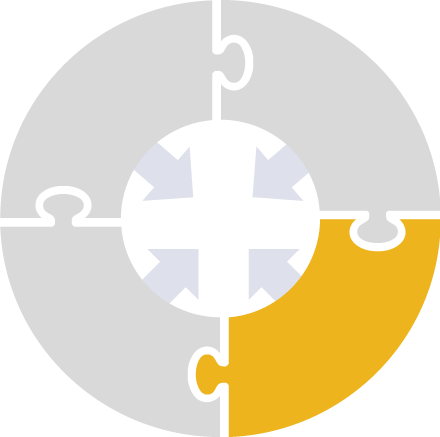A child is born in Massachusetts . . .
then what happens?
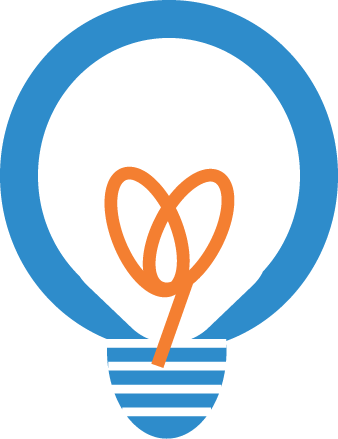
From birth to age 5, children develop more rapidly than at any other time in their lives. In the first year, children's brains double in size. By the time they are 5 years old their brains have grown to about 90% of adult size. In these early years, a remarkable one million new neural connections are formed every second.
During this developmental period, children display incredible physical, cognitive, linguistic, emotional and social growth - all of which help to set the foundation for their future success, health, and wellbeing.
The quality of children’s experiences in these early years has a significant impact on the strength of this foundation.

Explore the journeys that Massachusetts families and young children take through the first 5 years of life, and the various systems they interact with along the way.
Or continue down the page to follow a family's journey, beginning at their child's birth and moving through the ages.
Note: If you are looking for parent- and caregiver-friendly resources, we recommend this external website from the Commonwealth of Massachusetts.
There are nearly 360,000 children between the ages of 0 and 5 living in Massachusetts.
Every child's developmental journey is unique.
When a child is born, social determinants such as socio-economic status, gender, race, education level, and geography have a large impact on the path a child and family take, and the resources to which they do or do not have access.
During pregnancy, families are usually looked after by their primary care doctor or women’s health specialist as they navigate the childbearing experience. However, once that child enters the world, families are on their own to learn new skills and navigate new experiences every day. This includes balancing children and career, which can be a significant stressor for parents.
Birth
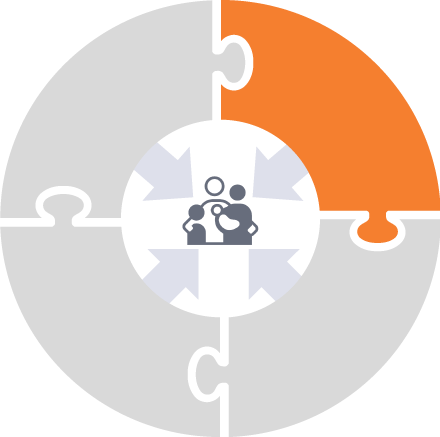
FAMILY & CAREGIVER SUPPORTS
Where and how one gives birth varies from person to person. Some choose to have midwives or doulas to support the birthing process in the comfort of their own home, while others choose to give birth in a hospital or other medical center. Health, safety, and comfort all play a role in the setting a parent chooses.
EQUITY CONSIDERATIONS
Given a long history of mistreatment of people color within the medical system, parents of color may feel distrustful of this system. Through interviews with parents, parents of color reported experiencing racism within the health system and receiving unfair treatment, lack of support, and inadequate care during birth.
Birth
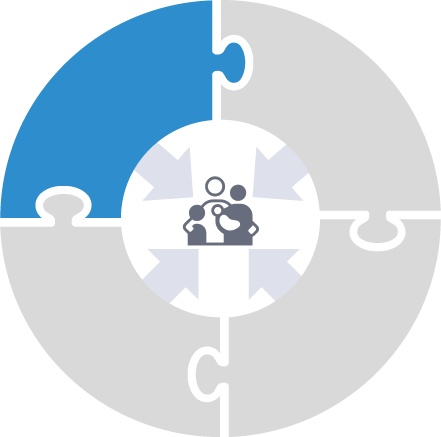
Health & Wellbeing
The Search for a Pediatrician
When and how families find a pediatrician varies. Parents may search online, seek recommendations from family and friends, or receive a referral from a healthcare provider to a community-based clinic. Given the essential nature of this relationship, it is important that families find someone they can trust.
Birth

FAMILY & CAREGIVER SUPPORTS
Feeding & Lactation Support
Support for the birthing parent during and post birth can take multiple forms. Parents who encounter difficulties feeding their child, regardless of whether they are using breast or bottle, may seek support from a lactation specialist. Support groups such as breastfeeding groups can offer comfort, social support, and resources to birthing parents.
Birth

FAMILY & CAREGIVER SUPPORTS
Home Visiting
Home visiting connects new and expecting parents with specialists who support them in navigating the early stages of a young child's life. Through home visits, caregivers can receive guidance on parenting and access to additional resources.
Birth
During the first 6 months of life, children are exploring the world around them and building dexterity and strength. Simultaneously, parents are dealing with lack of sleep, balancing responsibilities, reconfiguring family dynamics, and more. Supports during this time focus heavily on healthy development, as well as supporting the family unit with navigating their new reality.
0-6 months

FAMILY & CAREGIVER SUPPORTS
6 Well Baby Visits happen within the first 6 months of life
Pediatricians are often families’ main source of information in the first few years of life. Families typically meet with their pediatrician for
“well baby" or "well child" visits multiple times in the first month of life.
0-6 months

Health & Wellbeing
Monitoring Developmental Milestones
Within the first few months of life,
monitoring a child’s development
is a priority for families and other people in a child’s life. Developmental milestones are guidelines to help both caregivers and health professionals monitor and support children's growth and wellbeing. All children are unique, and many may experience developmental milestones either before or after projected dates without any cause for concern. However, some families may notice developmental delays that cause concern and may seek a referral for
Early Intervention (EI).
0-6 months

FAMILY & CAREGIVER SUPPORTS
Parenting Classes & Supports
The weight of parenthood comes with daily challenges and can be overwhelming. Many parents spoke to the struggles of balancing their children’s lives and their own mental health. Families may find solace and knowledge in parenting classes or support groups to build community, share challenges, and learn about new topics and skills.
0-6 months
During these months, children begin to notice and build skills for navigating and interacting with their surroundings, including building relationships with others outside their family unit. For children entering child care settings, this may be the first time the child is without their primary caregiver(s).
6-18 months
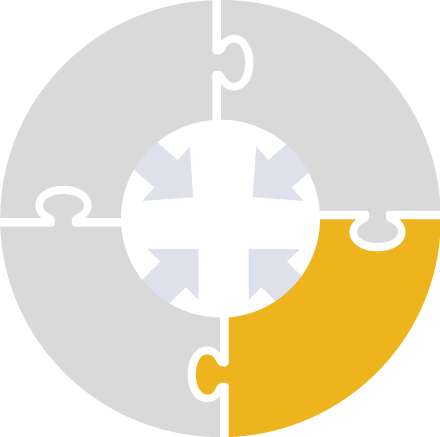
Education & CARE
Navigating Child Care
Parents returning to work and other responsibilities may need support caring for their children. Regardless of whether they engage
family members, siblings or neighbors, or choose a formal setting such as a
child care center or family child care home, their main concern is likely finding someone they trust to care for their child. Affordability, schedule, program quality, and an accessible location are also core factors in their decision process.
6-18 MONTHS

Community Engagement
Play Groups
Play groups are community activities, either formal or informal, that provide children with socialization, fun activities, learning opportunities, and more before they enter school. These activities allow families and children to bond and develop important lifelong skills through play.
EQuity Considerations
For some families and children across the state, community offerings, such as play groups, may not be easily accessible or offered in an inclusive manner. Language and/or physical accessibility, cross-cultural offerings, diversity, and representation of staff working can affect a family's ability to feel welcome, safe, and included in the community.
6-18 MONTHS
As children exit infancy and enter their toddler years, they begin to build self-confidence and spend more time discovering the world around them. Implementing healthy habits (with support from healthcare providers, early childhood educators, and community) such as encouraging lots of play time, eating healthy foods, introducing potty training, and staying up-to-date on immunizations are all important during this time.
18 MONTHS - 3 years

Education & CARE
Transitioning to Preschool
High quality early childhood education can set a child up for success developmentally, socially, and academically. It can support enrichment, learning, and activity, while allowing families to earn a viable income in the workforce.
Equity considerations
Families and caregivers who work non-traditional hours and need access to child care outside of the usual offerings (for example, 8 AM - 4 PM) may experience hardship due to this lack of support. This could mean working fewer hours and earning less money or relying on older siblings or relatives for care. Additionally, the pandemic caused many providers to adjust their hours due to lack of staffing, making evening care even less available. This burden disproportionately falls on hourly wage earners in service industries and families/caregivers that work multiple jobs.
18 MONTHS - 3 years

Community Engagement
Connecting with the Community
Children absorb information everywhere they go. Libraries, museums, zoos, and other community organizations greatly contribute to children's learning and development.
18 MONTHS - 3 years
No longer infants or toddlers, 3 - 5 year old children are building their friendship muscles, moving from individual play to collaborative play, displaying independence, and learning new skills for navigating the social world.
3 - 5 years

Education & CARE
Preparing for Elementary School
As children approach 5 years of age, caregivers may start to make a decision about their K-12 schooling, whether that means a public, private, or parochial school, homeschooling, or other type of education setting. Placement decisions may be based on many factors, including location, cost, quality rating, word of mouth, cultural preferences, and/or slots available.
3 - 5 years

Education & CARE
Obtaining Special Education Services
Students 3 years of age and older who need additional support, whether that be academically, social-emotionally or otherwise, may go through a process to receive an Individualized Education Program (IEP) through special education services at their identified school.
3 - 5 years

Community Engagement
Enrichment Beyond the Classroom
Once enrolled in a public or other school program, children can access out-of-school time programming. Before- and after-school programs offer further developmental growth and enrichment activities for children while allowing parents more flexibility with work hours and other needs.
3 - 5 years
Have A Thought? Join our Newsletter? Send Us A Note!
Contact
All developmental milestones come from the American Academy of Pediatrics and the Centers for Disease Control and Prevention.






